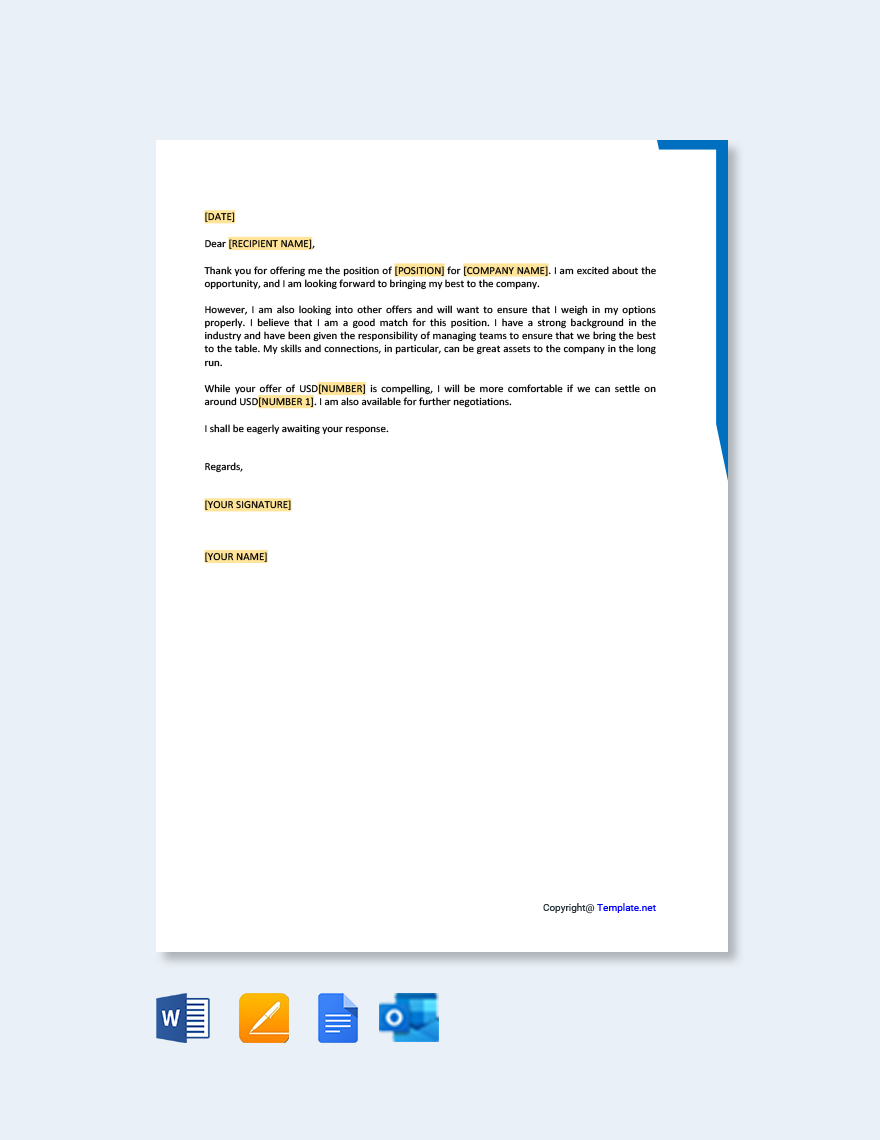Job Offer Negotiation: Overcoming The 'Best And Final' Obstacle

Table of Contents
Understanding the "Best and Final" Tactic
The phrase "best and final offer" is a common negotiation tactic used by employers to pressure candidates into accepting the initial offer without further discussion. It's a way to bring a potentially lengthy negotiation process to a close. Understanding the employer's perspective is crucial. They may be facing internal deadlines, budget constraints, or simply want to move forward with filling the position quickly.
-
Potential reasons behind a "best and final" declaration:
- Budgetary limitations: The company may have a fixed budget for the role.
- Time constraints: They might need to fill the position urgently.
- Internal competition: Other candidates might be in consideration.
- Negotiation fatigue: The hiring manager may simply be tired of negotiating.
-
Recognize this as a negotiation tactic, not necessarily a fixed offer. While it's presented as non-negotiable, it often is.
-
Avoid immediately accepting or rejecting; take time to consider. Take a breath, review the offer thoroughly, and strategize your next steps. Don't be rushed into a decision.
Strategies to Counter a "Best and Final" Offer
Effective job offer negotiation requires preparation. Having a well-defined salary range in mind before you even receive an offer is vital. Don't be caught off guard.
Reiterate Your Value
This is your opportunity to highlight why you are the ideal candidate and worth more than the initial offer. Quantify your achievements whenever possible.
-
Provide specific examples: Instead of saying "I'm a great team player," say, "In my previous role, I spearheaded a project that increased team efficiency by 15%, resulting in a 10% cost reduction."
-
Showcase your value proposition: Directly relate your skills and experience to the job description and company goals. Show them how your unique qualifications will benefit their organization.
-
Reiterate your enthusiasm: Re-emphasize your genuine interest in the position and the company. This shows you're not just in it for the money.
Negotiate Beyond Salary
Salary is not the only aspect of a job offer. Explore alternative compensation and benefits.
-
Alternative compensation:
- Signing bonus: A lump-sum payment upon starting the job.
- Stock options: Ownership stake in the company.
- Performance-based incentives: Bonuses tied to achieving specific goals.
-
Benefits negotiation:
- Vacation time: Negotiate additional vacation days.
- Flexible work arrangements: Request remote work options or flexible hours.
- Professional development opportunities: Ask for tuition reimbursement or training stipends.
-
Present these alternatives as equally valuable: Frame these benefits as ways to increase your overall compensation package without necessarily demanding a higher base salary.
Seek Clarification and Counter-Offer
Before responding, ask clarifying questions about the offer details. Are there any aspects you're unsure about? This shows you're thorough and serious about the offer.
-
Prepare a thoughtful counter-offer: Based on your research, reiterate your value, and the alternative compensation and benefits discussed, formulate a professional counter-proposal.
-
Politely push back: Explain your reasoning calmly and assertively. Frame your counter-offer as a reflection of your value and market worth.
-
Remain professional: Maintain a positive and respectful tone throughout the conversation.
Knowing When to Walk Away
Accepting an offer that doesn't meet your needs isn't always the best option.
-
Long-term implications: Consider the impact of accepting a lower salary or fewer benefits on your long-term financial goals and career trajectory.
-
Current situation: Evaluate your financial situation and the progress of your job search. Do you have other promising prospects?
-
Weigh the benefits: Carefully weigh the overall benefits of the position – including company culture, growth opportunities, and work-life balance – against the compensation and other factors.
Conclusion:
Successfully navigating job offer negotiation, especially when confronted with a "best and final" offer, demands preparation, assertive communication, and a clear understanding of your worth. By utilizing the strategies detailed above, you can confidently address these offers and secure a compensation package that truly reflects your skills and experience. Don't hesitate to advocate for yourself; effective job offer negotiation is essential for a fulfilling and appropriately compensated career. Remember, your worth is not a fixed number, and successful negotiation requires preparation and skillful communication. Master the art of job offer negotiation and secure the compensation you deserve!

Featured Posts
-
 Vybz Kartel Opens Up Skin Bleaching And The Search For Self Love
May 23, 2025
Vybz Kartel Opens Up Skin Bleaching And The Search For Self Love
May 23, 2025 -
 Daco Valerie Rodriguez Erazo Asume La Secretaria
May 23, 2025
Daco Valerie Rodriguez Erazo Asume La Secretaria
May 23, 2025 -
 Kermit The Frog Commencement Speaker At University Of Maryland In 2025
May 23, 2025
Kermit The Frog Commencement Speaker At University Of Maryland In 2025
May 23, 2025 -
 7 Shows To Stream On Netflix This Week May 18 24
May 23, 2025
7 Shows To Stream On Netflix This Week May 18 24
May 23, 2025 -
 The Devastating Impact Of Wildfires Record High Global Forest Loss
May 23, 2025
The Devastating Impact Of Wildfires Record High Global Forest Loss
May 23, 2025
Latest Posts
-
 The Last Rodeo Examining Neal Mc Donoughs Character
May 23, 2025
The Last Rodeo Examining Neal Mc Donoughs Character
May 23, 2025 -
 Neal Mc Donoughs Role In The Last Rodeo
May 23, 2025
Neal Mc Donoughs Role In The Last Rodeo
May 23, 2025 -
 Smart Shopping For Memorial Day 2025 Best Sales And Deals
May 23, 2025
Smart Shopping For Memorial Day 2025 Best Sales And Deals
May 23, 2025 -
 Dallas Welcomes The Usa Film Festival Free Movies And Star Guests
May 23, 2025
Dallas Welcomes The Usa Film Festival Free Movies And Star Guests
May 23, 2025 -
 Dc Legends Of Tomorrow The Ultimate Fans Resource
May 23, 2025
Dc Legends Of Tomorrow The Ultimate Fans Resource
May 23, 2025
